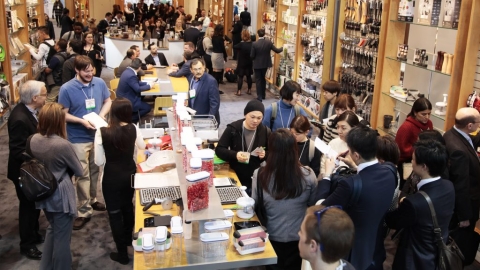UFI Report Estimates $27.7 Billion Current Negative COVID-19 Impact on Trade Shows Globally

UFI, The Global Association of the Exhibition Industry, released global numbers that reflect due to the spread of COVID-19 the impact that trade show postponements and cancellations are having for both the exhibiting companies, as well as for the trade show industry around the world.
“Globally, the fact that more than 500 trade shows have not taken place in recent weeks is creating an escalating ripple effect for whole industries,” said Kai Hattendorf, UFI managing director/CEO.
In the United States alone, with large trade shows such as The Inspired Home Show (est. 800,000+ net square feet) not taking place in Chicago and HIMSS (est. 600,000+ net square feet) canceling last week in Orlando, among several others, there have been considerable losses already.
According to UFI calculations, based on the 4.4 million total net square feet of shows that were postponed and canceled since the end of February on the TSNN Top 250 trade show list, the total negative economic impact so far is $1.2 billion, which translates to 11,200 jobs.
On every showfloor, business gets done.
Based on UFI data, the orders that exhibiting companies currently are not securing so far add up to $ 27.7 billion globally.
Of this, UFI estimates lost orders of around $14.8 billion in Asia/Pacific, $11 billion in Europe and $1.9 billion in the U.S.
As additional events continue to be postponed, these numbers will rise further in the weeks to come.
As an industry, the exhibitions generate a total economic output of $26.2 billion per month globally on average, translating into more than 270,000 jobs.
Besides the economic impact losses in the U.S. of events not taking place, in Europe and Asia/Pacific total losses so far are $16.5 billion. Hardest hit is Asia/Pacific, where the impact already is reaching more than $9.6 billion.
In Europe, with an ongoing wave of postponed and/or cancelled shows, the impact is reaching $6.6 billion. In addition, $1.2 billion so far in the U.S., as mentioned higher. Calculations for other regions are underway.
Calculations come from the UFI/SISO Global Economic Impact reports for the impact on the industry, and UFI estimates for the "business generated for exhibitions companies (ROI of 8 on the short term).”
Many of the events that are not taking place this quarter are being postponed and rescheduled to take place later in the year. This may help to reduce the mid-to-long-term impact, according to UFI officials.
“But even short-term postponements have an immediate impact because they delay scheduled business and revenues. This poses an existential risk, in particular for small and medium-sized companies,” said Christian Druart, UFI research manager.
“These numbers stress the critical importance exhibitions play in any economic recovery – marketplaces and meeting places are the fastest fast track to drive any economic recovery,” Hattendorf said.
He added, “We rely on the joint efforts from policymakers and global leaders to ensure that the companies that organize these events, creating those necessary market and meeting places, will be able to continue to fulfill that role in the future. All of these companies are already suffering massively under the current wave of postponements and cancellations.”


Add new comment